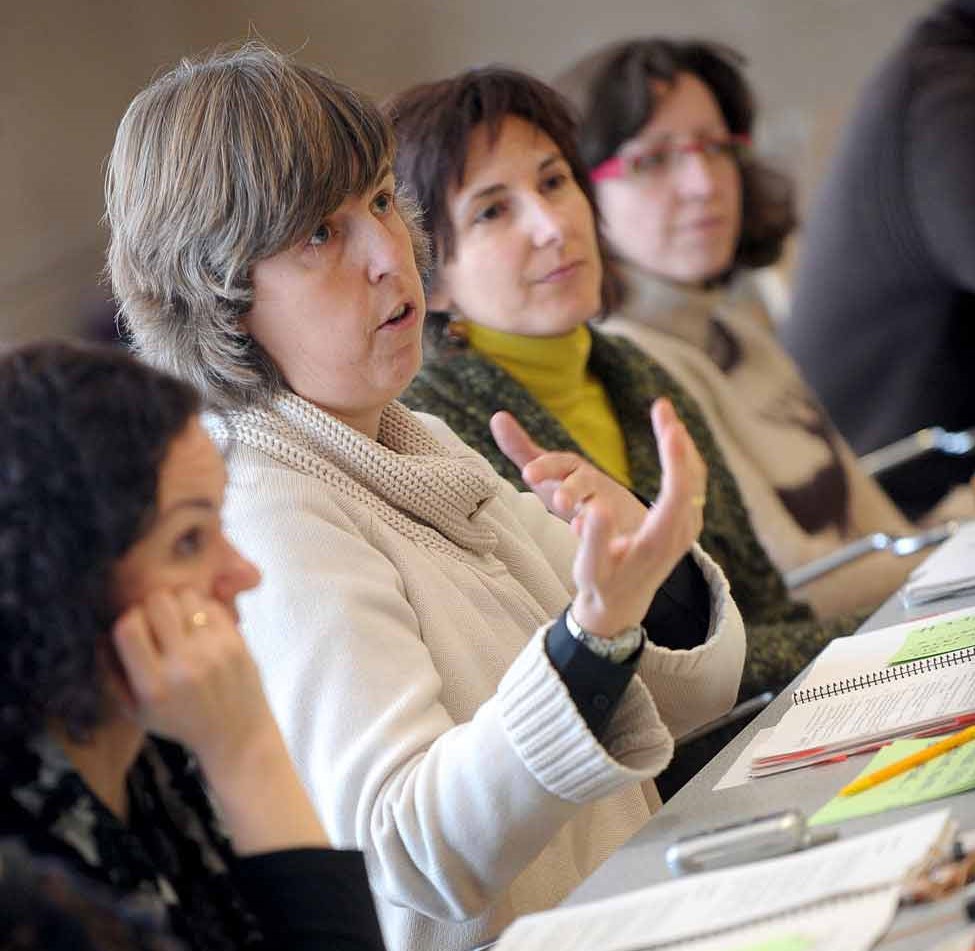
Good Practice: Mix of techniques used to involve different groups of stakeholders as well as transparent process on how public contributions were taken into account in the final plan.
Type: Governmental (Department of Environment of the Government of Aragón)
The Spanish Strategy for Climate Change and Clean Energies, as a planning tool for the development of public policies on mitigation and adaptation to climate change, invited regional governments of the Autonomous Communities (regions of Spain) to develop their own strategies for climate change to cooperate with the Government of Spain in achieving the Kyoto Protocol objectives. The Department of Environment of the Government of Aragón started its work on the Climate Change and Clean Energies Strategy (EACCEL) in 2007. The process of public participation and consultation took place from late 2008 till mid-2009.
Working language(s): Spanish
Start: 2008-11-11
Duration: 10 months 11 days
Target group(s):
The final planning document, EACCEL, is aimed at all inhabitants, companies and local governments of Aragón. Current Aragón’s population is 1.345.473 (January 2009 census data)
Persons and entities invited to participate in the public consultation process: 2.729
Participants in the participation dynamics: 223
Budget and funding sources: Basically the cost of the own personnel of the Government of Aragon. Some items (dynamics), with funding from the Government of Aragon, were externalized.
Partner organizations involved: Participation dynamics were conducted by the General Directorate of Environmental Quality and Climate Change and the General Directorate of Public Participation of the Government of Aragón
Stakeholders involved: Announcement of the process was widespread in the media to encourage participation of the public interested. Local authorities (municipalities and counties) companies in trade regime, unions, employers, professional associations and groups, environmental NGOs, etc. were specifically invited to participate in the process.
MAIN OBJECTIVES OF THE INITIATIVE
- To analyze Aragón’s situation with respect to social and environmental factors regarding climate change.
- To identify the most relevant lines of action.
- To propose reduction, adaptation and mitigation objectives for each different sector.
- To foster participation and dialogue with stakeholders and to involve Aragon’s society in the implementation and proper functioning of the objectives and measures of the EACCEL.
METHODOLOGY
Official function (November 2008) to present the draft document to the public and to inform of the ongoing public consultation process. Three information sessions by the General Director of Environmental Quality and Climate Change and the General Director of Public Participation in the cities of Zaragoza, Huesca and Teruel, to give participants some previous information and to present the main contents of the draft.
Dynamic workshops organized by the General Directorate of Public Participation, from November 2008 till April 2009. More than 2.700 invitations to general public and collectives to participate. Involvement of 223 representatives of economic agents, social organizations and administrations.
20 workshops, 4 hours long each. Two facilitators conducted the debates, took note of all the comments and contributions and wrote them down on a flip chart. The presence of experts from the Government was limited to explain the national and international framework of the EACCEL, to help in the comprehension of the current legislation and to clarify any point, but they did not submit any proposals nor expressed any opinion. The outcomes of the workshops were compiled in different memos from which 730 contributions were obtained and characterized.
In April and May 2009, the EACCEL draft was submitted to public consultation and nine allegations were received. These allegations were categorized and individualized to obtain 131 different contributions. 45 further contributions were received by other channels (e-mail, etc). Every contribution (906 altogether) was thoroughly examined in order to include them, either total or partially, in the final document. For this purpose, different units of the government of Aragón were involved.
A number of cards were specifically designed for the management of each contribution. Each card provides the source of the contribution, the expression or claim that was reflected in the participatory workshops, reasoned assessment of total or partial incorporation into the document and, where applicable, the reasons for not incorporating, the kind of amendment brought about in the text, the final wording to be included in the final document and the administrative units of the Government of Aragon who have participated in the preparation of the response.
The collection of cards (906) constitutes a relevant returning document. The collection is available on line and was not distributed in printed version.
RESULTS AND EVALUATION OF THE INITIATIVE
Results: The EACCEL document was finally passed by the government of Aragón.
Strengths, good practices and lessons learned:
- The publicity of the process increased the knowledge of the citizenship regarding climate change problems.
- The document is intended to be used by everyone. Actions against climate change affect us all, and a public participation process in the making of the planning document results in a better involvement of all stakeholders.
- The combination of dynamic techniques (providing active participation of the public involved) with the regular public consultation process (ensuring the literalness of the contributions and the equal treatment of every citizen and requiring a reasoned response from the administration) obtained good results. Both techniques are considered to be complementary.
- The reliability of the returning process (906 cards describing how every contribution has been taken into account) allows an increased credibility for further actions.
Conditions for successful replication of the initiative’s strengths and good practices: It is important to ensure in advance a minimum knowledge among participants of the preliminary documents.
Weaknesses and risks:
- Little knowledge of the preliminary documentation.
- Representativeness of groups is more informal than formally accredited.
- Intensity, length or availability of resources do not allow to apply this kind of dynamics in all decision making processes.
- This process did not fully satisfy opposite positions.
Unresolved issues: To put into practice the above mentioned.











